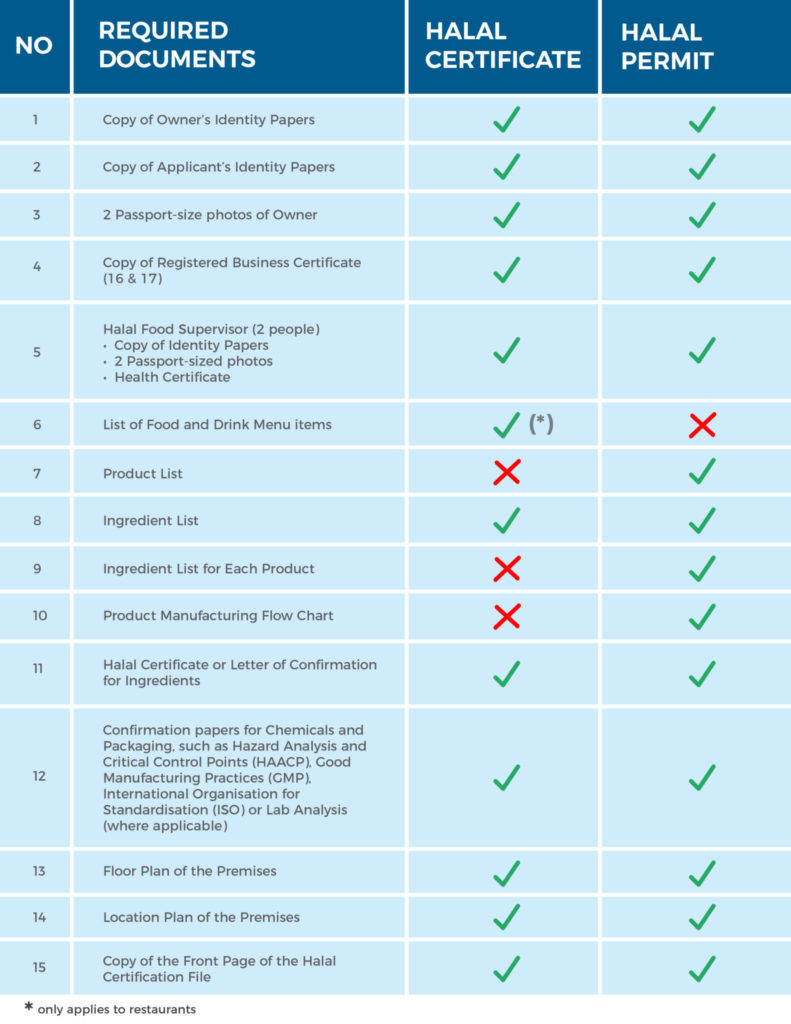Are you looking to get Halal certification for your eatery and products but wondering what exactly is required, how much it would cost or where to start?
Here’s an outline of the process of getting Halal – which the Ministry of Religious Affairs (MoRA) has committed to issuing in 45 days, provided all conditions are met.
The first step is to obtain the application form from the counter at the Halal Food Control Division at the Department of Syariah Affairs under MoRA located opposite the Sultan Omar Ali Saifuddin Mosque in the capital or the MoRA branches in the other three districts.
An important distinction is that if you are running a restaurant, you will only need the Halal Certificate application form while those who are producing locally made products for sale need both the Halal Certificate and the Halal Permit application forms.
Those looking to manufacture products or run restaurants need to have two full-time Halal Supervisors in order to get a certificate or permit. These supervisors need to be above 18-years-old and Muslim. If the owner or applicant is a Muslim, then the owner is eligible to be a supervisor.
However only one has to be on-site at all times.

For eateries and manufacturers – a complete ingredient list which also mentions item’s country of origin and any accompanying certification or confirmation papers certifying its Halal status along with the floor plan of the premises and the location plan of the premises.
Those running a restaurant or eatery will also need to submit a menu of the food and drinks served.
Additional requirements for manufacturers, are a product list, which include variations of the product – for example kueh mor with oreo and kueh mor cornflakes – as well as a flow chart on how the product is made and quality certifications proving the chemicals and packaging used in the product are safe.
Once these application and documents are submitted to the authorities, the second step is a written halal test for supervisors, followed by a compliance audit by MoRA through a visit, by appointment, to the business site to make sure that the premises are up to standard.
These may include making sure that the tools and equipment used to prepare the food or manufacture the products is separate from any other tools and equipment used for other purposes as well as segregating manufacturing space.
This is especially relevant to home-based businesses where the kitchen area is also used to make food products to sell.
Making sure that the space where the manufacturing happens is completely separate from the space where daily home cooking is done, as well as segregating the tools and equipment and even having a completely separate refrigerator and space for the ingredients is a common non-compliance report (NCR) for home-based businesses looking to apply for the Halal certificate and permit.
The on-site auditors will also look to see whether the manufacturing area or the kitchen complies with health and hygiene standards. They’ll also see whether there are any undeclared ingredients used during the preparation of the food or product.
If there are any NCRs, the auditors will issue a corrective action request (CAR) and provide the applicants some time to make the corrective actions.
Once everything checks out, the application is sent towards the Halal Certificate and Halal Label Inspection committee for approval before going to the Majlis Ugama Islam (MUIB) for final approval.
The fee for the Halal Certificate is $90 and is valid for three years while the Halal Permit costs $50 per product and has no expiry date but is dependent on the validity of the business’ Halal Certificate.
The government is also studying the cost for the Halal Permit to make the procedure more affordable for micro, small and medium enterprises.
If there are no NCRs or CARs, the whole process will take 45 calendar days to complete; the processing of application takes 11 days, the period between test and on-site inspection; three days, followed by 31 days for final certification to be issued.
For more information on the application process, visit www.kheu.gov.bn or contact the application hotline at +6732242570/71 ext 113 or 2242566/67 ext 113 or email bkmh@mora.gov.bn.




